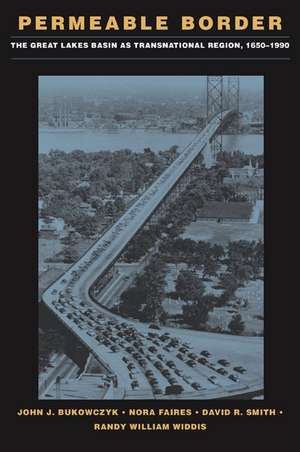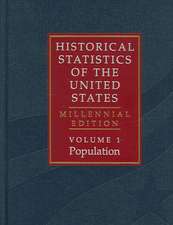Permeable Border: The Great Lakes Basin As Transnational Region 1650-1990
Autor John J Bukowczyk, Nora Faires, David R. Smith, Randy William Widdisen Limba Engleză Hardback – 19 sep 2005
From the colonial era of waterborne transport, through nineteenth-century changes in transportation and communication, to globalization, the history of the Great Lakes Basin has been shaped by the people, goods, and capital crossing and recrossing the U.S.-Canadian border.
During the past three centuries, the region has been buffeted by efforts to benefit from or defeat economic and political integration and by the politics of imposing, tightening, or relaxing the bisecting international border. Where tariff policy was used in the early national period to open the border for agricultural goods, growing protectionism in both countries transformed the border into a bulwark against foreign competition after the 1860s. In the twentieth century, labor migration followed by multinational corporations fundamentally altered the customary pairing of capital and nation to that of capital versus nation, challenging the concept of international borders as key factors in national development.
In tracing the economic development of the Great Lakes Basin as borderland and as transnational region, the authors of Permeable Border have provided a regional history that transcends national borders and makes vital connections between two national histories that are too often studied as wholly separate.
During the past three centuries, the region has been buffeted by efforts to benefit from or defeat economic and political integration and by the politics of imposing, tightening, or relaxing the bisecting international border. Where tariff policy was used in the early national period to open the border for agricultural goods, growing protectionism in both countries transformed the border into a bulwark against foreign competition after the 1860s. In the twentieth century, labor migration followed by multinational corporations fundamentally altered the customary pairing of capital and nation to that of capital versus nation, challenging the concept of international borders as key factors in national development.
In tracing the economic development of the Great Lakes Basin as borderland and as transnational region, the authors of Permeable Border have provided a regional history that transcends national borders and makes vital connections between two national histories that are too often studied as wholly separate.
Preț: 388.56 lei
Nou
Puncte Express: 583
Preț estimativ în valută:
74.37€ • 77.51$ • 61.91£
74.37€ • 77.51$ • 61.91£
Carte disponibilă
Livrare economică 14-28 decembrie
Preluare comenzi: 021 569.72.76
Specificații
ISBN-13: 9780822942610
ISBN-10: 0822942615
Pagini: 312
Dimensiuni: 156 x 235 x 25 mm
Greutate: 0.69 kg
Ediția:1
Editura: University of Pittsburgh Press
Colecția University of Pittsburgh Press
ISBN-10: 0822942615
Pagini: 312
Dimensiuni: 156 x 235 x 25 mm
Greutate: 0.69 kg
Ediția:1
Editura: University of Pittsburgh Press
Colecția University of Pittsburgh Press
Recenzii
“Permeable Border offers a fresh, thought-provoking inquiry into the history of U.S.-Canadian relations. Examining economic development, migration, and national policies, these essays throw light on the changing patterns of cross-border interaction in the Great Lakes region since 1800. This book will be essential reading for scholars interested in an integrated view of North American history, and makes a valuable contribution to contemporary debates over globalization.
--Christopher Clark, University of Connecticut
--Christopher Clark, University of Connecticut
Notă biografică
John J. Bukowczyk is professor of history and director of the Canadian Studies Program at Wayne State University in Detroit.
Nora Faires is associate professor of history and women’s studies at Western Michigan University in Kalamazoo.
David R. Smith is a history instructor and academic advisor at the University of Michigan, Ann Arbor.
Randy William Widdis is professor of geography at the University of Regina.
Nora Faires is associate professor of history and women’s studies at Western Michigan University in Kalamazoo.
David R. Smith is a history instructor and academic advisor at the University of Michigan, Ann Arbor.
Randy William Widdis is professor of geography at the University of Regina.
Descriere
This text examines the history of the Great Lakes Basin in relation to its importance as a place of social, economic, and political interaction between the United States and Canada.














